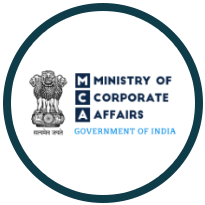

In India, the corporate landscape has witnessed significant changes, allowing entrepreneurs and small business owners to choose from various legal business structures. Two popular business entities in India are private limited companies and one-person companies (OPCs). While private limited companies require a minimum of two directors and shareholders, OPCs are designed for sole proprietors who wish to enjoy the benefits of a company structure. In this article, we will explore converting a private limited company to a one-person company in India, the advantages and limitations of OPCs, the conversion process, legal requirements, tax implications, and more.
In India, private limited companies are among the most popular business structures. They offer little liability protection to the shareholders, allowing them to safeguard their assets. Additionally, private limited companies enjoy separate legal entity status, perpetual existence, and better access to funding opportunities. However, at least two directors and shareholders may pose limitations for entrepreneurs looking to start a business independently.
To address the needs of individual entrepreneurs, the concept of One Person Companies (OPCs) was introduced in India. An OPC is a hybrid structure that combines the benefits of a sole proprietorship and a company. It allows a single individual to incorporate and run a company, enjoying limited liability protection and the ability to raise funds. OPCs can also convert into private or public limited companies as they grow.
Entrepreneurs who initially incorporated their businesses as private limited companies might consider converting to OPCs to take advantage of the benefits offered by the OPC structure. Conversion allows the business to transition from a multiple-member structure to a single-member structure. However, certain conditions need to be met for such a conversion, including ensuring that the paid-up share capital does not exceed a prescribed threshold, notifying the registrar, obtaining shareholder approval, and updating the memorandum and articles of association.
OnePerson Companies offer several advantages to entrepreneurs, including limited liability protection, perpetual succession, and the ability to raise funds through loans, credit facilities, and venture capital. OPCs also provide a sense of credibility and trustworthiness, as the company structure demonstrates commitment and professionalism. Additionally, OPCs allow individuals to separate their assets from the business, reducing personal financial risks.
Conversion from a private limited company to an OPC involves specific steps and compliances. It includes obtaining a no-objection certificate (NOC) from existing shareholders, updating the memorandum and articles of association, altering the name of the company, amending the PAN and other statutory registrations, and informing the Registrar of Companies (RoC) about the conversion. It is advisable to consult a professional to ensure a seamless and compliant conversion process.
A private limited company to an OPC requires adhering to various legal requirements and compliance measures. These may include obtaining consent from creditors, updating statutory records, drafting and filing necessary resolutions and forms, and ensuring compliance with the Companies Act 2013 and other applicable regulations. If these requirements are not met, it can result in penalties and legal repercussions, underscoring the importance of proper guidance and compliance.
While OPCs offer numerous advantages, they also have certain limitations and considerations. OPCs cannot issue publicly tradable shares and are restricted from nonbanking financial investment activities. The OPC structure may not be suitable for businesses with plans for extensive growth or those aiming to raise significant capital through external investments. Entrepreneurs should evaluate their business goals and long-term strategies before converting from a private limited company to an OPC.
Converting a private limited company to an OPC may have tax implications. Entrepreneurs need to think about how capital gains tax, the goods and services tax (GST), income tax, and other applicable taxes will affect their business. It is advisable to consult with tax professionals or chartered accountants to assess the tax implications and plan accordingly to optimize tax efficiency.
When considering conversion from a private limited company to an OPC, it is essential to compare the OPC structure with other business structures. Sole proprietorships and limited liability partnerships (LLPs) offer distinct advantages and limitations. Assessing factors such as liability protection, compliance requirements, tax implications, fundraising options, and ease of operation will help entrepreneurs decide on the most suitable business structure for their specific needs.
Q1. Can a foreign national convert a private limited company to an OPC in India?
A: Only Indian residents can incorporate and convert to OPCs per the current regulations.
Q2. What are the minimum requirements for converting to an OPC?
A: The minimum requirements include having at least one director and shareholder who is an Indian resident and nominating a natural person as a nominee for the OPC.
Q3. Is it mandatory to have a nominee for an OPC?
A: Yes, every OPC must nominate a person who will become a company member in the event of the sole member’s death or incapacity.
Q4. Can an OPC convert back to a private limited company?
A: Yes, an OPC can be converted back to a private limited company if the paid-up share capital exceeds the prescribed threshold or the OPC’s turnover exceeds the specified limit.
Q5. What are the compliance requirements after conversion to an OPC?
A: After conversion, an OPC must comply with the ongoing regulatory requirements, such as filing annual returns, conducting regular board meetings, maintaining proper books of accounts, and adhering to other applicable statutory obligations.
Q6. Can I convert my private limited company to an OPC without a nominee?
A: No, every OPC must nominate a person Who will become a company member in the event of the sole member’s death or incapacity.
Q7. Can an OPC be converted back to a private limited company?
A: Yes, an OPC can be converted back to a private limited company if the paid-up share capital exceeds the prescribed threshold or the OPC’s turnover exceeds the specified limit.
Q8. What are the tax benefits of converting to an OPC?
A: Tax benefits may include lower tax rates, deductions, exemptions, and simplified tax compliance procedures. However, individual circumstances may vary, and it is recommended to consult a tax professional for accurate advice.
Q9. How long does the conversion process typically take?
A: The conversion process can take approximately 23 months, considering the necessary approvals, filings, and compliance requirements.
Q10. Can I convert my OPC to a public limited company in the future?
A: A public or private limited company can be converted from an OPC if the business expands and needs a different structure. Proper compliance with legal requirements and procedures is necessary for such conversions.
Q11. What are the advantages of converting to an OPC compared to a sole proprietorship?
A: Converting to an OPC provides limited liability protection, which means that the sole proprietor’s personal assets are separate from the business liabilities. It also enhances the credibility and professionalism of the business, making it easier to attract customers, partners, and investors.
Q12. Are there any restrictions on the nature of businesses that can convert to OPCs?
A: Certain businesses, such as charitable or nonprofit organizations, cannot convert to OPCs. Additionally, businesses engaged in financial activities requiring licensing or with nonresident shareholders cannot opt for an OPC structure.
Q13. Can an existing private limited company with multiple directors convert to an OPC with a single director?
A: It is possible to convert an existing private limited company with multiple directors to an OPC with a single director. However, the conversion process must comply with the legal requirements and obtain the necessary approvals.
Q14. Is it mandatory to change the name of the company during the conversion process?
A: It is not mandatory to change the company’s name during the conversion process unless the sole member chooses. The existing name can be retained if desired.
Q15. What are the ongoing compliance requirements for OPCs after the conversion?
A: After conversion, OPCs must fulfill regular compliance obligations, such as filing annual financial statements, holding annual general meetings, maintaining proper books of accounts, and ensuring timely tax filings. OPCs must also inform the Registrar of Companies about changes in the nominee or shareholding structure.
Sandip Kumar(Director)
Nlamnetic Private Ltd.

Exceptional service, prompt execution, and impeccable support. FilingWay Private Limited made my Private Limited Company registration seamless and hassle-free. Highly satisfied !
Shahrukh(Director)
Skuas Pest Control

I've been relying on FilingWay Private Limited for monthly GST filing for my pest control business. Their consistent support and expertise in navigating the complex GST requirements have been invaluable. I highly appreciate their reliable service !
S Arun Shankar(Director)
Coderfriend OPC private ltd.

I am absolutely delighted with the exceptional service I received from FilingWay Private Limited for my One Person Company registration. Their professionalism, attention to detail, and clear communication made the process seamless. With their support, my dream of starting my own company became a reality !
Shivam Prasad(Director)
Soniwalia foods private ltd.

With exceptional finesse and diligent guidance, FilingWay Private Limited expertly handled the Private Limited Company registration for my restaurant. Truly impressed with their expertise and unwavering commitment !